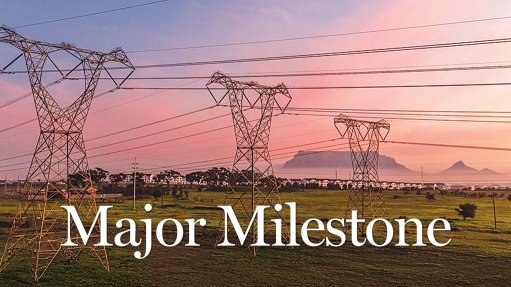The Sudan-Russia nexus
Sudan’s Islamist-led military is seeking to consolidate its control of the country, assumed in an October 25, 2021, coup d’état, through deception, extreme violence, abduction, suppression and grand-scale corruption. The Islamists first seized power in 1989 and, under the then junta leader, Omar al-Bashir, have been central to several major international terror attacks and have acted as a hub for other Islamist organisations, from Nigeria’s Boko Haram to Palestine’s Hamas.
Now, again, the military junta’s renewed threat is not limited to Sudan’s prodemocracy movement – in the newly febrile international environment, the junta has found confidence provided by friends in Moscow.
Few observers give any credence to coup leader General Abdel Fattah al-Burhan’s July 4 speech, in which he said the army would withdraw from ongoing political talks and allow political opposition groups to form a civilian transitional government. Seasoned observers instead see this as a ploy to divert and end Sudan’s opposition political coalition, the Forces for Freedom and Change, well-heeded calls for united civilian action to overthrow the military through a general strike in the first two weeks of July and comprehensive civil disobedience to escalate after the July 9 to 13 Eid al-Adha holidays – until the military are ejected from power.
Protests began on June 30, with record numbers of demonstrators gathering in Khartoum, Omdurman and Bahri. Burhan’s response was to order private-sector telecommunications and Internet companies to impose an Internet blackout while he ordered troops and tame militias on to the streets. Despite reassurances by Sudanese police that lethal force would not be used, security forces fired live ammunition into crowds in Omdurman and elsewhere in Khartoum to disburse the peaceful demonstration, resulting in at least nine deaths and over 600 injured, bringing the killings since the latest coup to 113, according to United Nations human rights chief Michelle Bachelet. Civilian protesters claim the number of dead is higher.
Of particular concern was Burhan’s reliance on the notorious Rapid Support Force (RSF) in suppressing the protests. Sudan’s National Intelligence and Security Service technically controls the RSF but in reality ruling military council head Mohamed Hamdan Dagalo, popularly known as Hemetti, controls it. Local sources report that the RSF is a visibly better kept and coordinated force than the Sudanese army, the Sudanese Armed Forces (SAF), with its members having smarter uniforms and being better and more reliably paid – which has resulted in a migration from the SAF to the RSF.
The Islamists’ newfound confidence carries an up-to-date, international and murky flavour. How are they achieving this success and liquidity as an armed unit in a country whose economy is in freefall and beset by protests and general strikes? Hemetti and Burhan are reportedly central to facilitating gold smuggling to facilitate the building of Russia’s gold reserves. The UK’s Daily Telegraph claims that Russia has built a $630-billion gold reserve in a bid to mitigate the impact of sanctions imposed following Russia’s invasion of Ukraine on February 24. Burhan and Hemetti are allegedly central to Russia’s plan to smuggle gold from Sudan to Russia through Dubai. Apparently, one flight a week departs from military airports. The Middle East Eye reported on June 7 that Burhan had issued an order barring the search for a Russian military plane suspected of smuggling gold in 2021.
The evidence of Russia’s backing for the Islamist regime is mounting. Some 30 t of gold has been flowing into Russia annually, although Africa Risk Consulting’s (ARC’s) diplomatic sources estimate the export of gold to be three times higher than the World Trade Organisation’s estimates. Either way, gold exports account for more than 50% of Sudan’s official exports and the United Arab Emirates received gold valued at about $1.7-billion. The US Treasury points to Meroe Gold, a gold mining operation in northern Sudan, which the US claims has ties to the paramilitary outfit, the Wagner Group. Also known as PMC Wagner, ChVK Wagner or CHVK Vagner, the Wagner Group is a Russian private company running a network of mercenaries working with militia and military groups across Africa – from Libya to Mali to the Central African Republic and as far as Mozambique. It is a de facto private army doing the bidding of Russian President Vladimir Putin but working very deliberately outside the international diplomatic sphere.
A Bloomberg investigation at the commercial registry in Sudan reveals that Meroe has interests in the mining, transport, agriculture and plastics industries in Sudan. US media reported the links between Meroe Gold, Russia and Hemetti as early as 2019, noting that Meroe Gold had imported 13 t of riot shields, helmets and batons for a company controlled by Hemetti’s family. More recently, Hemetti has taken delivery of a brand-new set of armoured personnel carriers. In February this year, Hemetti travelled to Russia, reportedly in a bid to advance trade between the two countries. Russia has rewarded Sudanese fealty with regular wheat shipments since January.
Despite this hardening of the military and militia alliance with mercenary backing, ARC sources with deep in-country knowledge believe the continued expansion of the RSF is not sustainable. Moreover, the enrichment of a single militia unit of the military junta may pose a threat to other members of the military government. Nor is the suppression of the prodemocracy protests likely to be successful: the latest manifestation of the Arab Spring has shown itself to be united, consistent, persistent, internationally connected and incredibly brave. As any South African can attest, water cannons, armoured cars and even live ammunition are no match for a political movement determined to have its say.
Article Enquiry
Email Article
Save Article
Feedback
To advertise email advertising@creamermedia.co.za or click here
Announcements
What's On
Subscribe to improve your user experience...
Option 1 (equivalent of R125 a month):
Receive a weekly copy of Creamer Media's Engineering News & Mining Weekly magazine
(print copy for those in South Africa and e-magazine for those outside of South Africa)
Receive daily email newsletters
Access to full search results
Access archive of magazine back copies
Access to Projects in Progress
Access to ONE Research Report of your choice in PDF format
Option 2 (equivalent of R375 a month):
All benefits from Option 1
PLUS
Access to Creamer Media's Research Channel Africa for ALL Research Reports, in PDF format, on various industrial and mining sectors
including Electricity; Water; Energy Transition; Hydrogen; Roads, Rail and Ports; Coal; Gold; Platinum; Battery Metals; etc.
Already a subscriber?
Forgotten your password?
Receive weekly copy of Creamer Media's Engineering News & Mining Weekly magazine (print copy for those in South Africa and e-magazine for those outside of South Africa)
➕
Recieve daily email newsletters
➕
Access to full search results
➕
Access archive of magazine back copies
➕
Access to Projects in Progress
➕
Access to ONE Research Report of your choice in PDF format
RESEARCH CHANNEL AFRICA
R4500 (equivalent of R375 a month)
SUBSCRIBEAll benefits from Option 1
➕
Access to Creamer Media's Research Channel Africa for ALL Research Reports on various industrial and mining sectors, in PDF format, including on:
Electricity
➕
Water
➕
Energy Transition
➕
Hydrogen
➕
Roads, Rail and Ports
➕
Coal
➕
Gold
➕
Platinum
➕
Battery Metals
➕
etc.
Receive all benefits from Option 1 or Option 2 delivered to numerous people at your company
➕
Multiple User names and Passwords for simultaneous log-ins
➕
Intranet integration access to all in your organisation


















